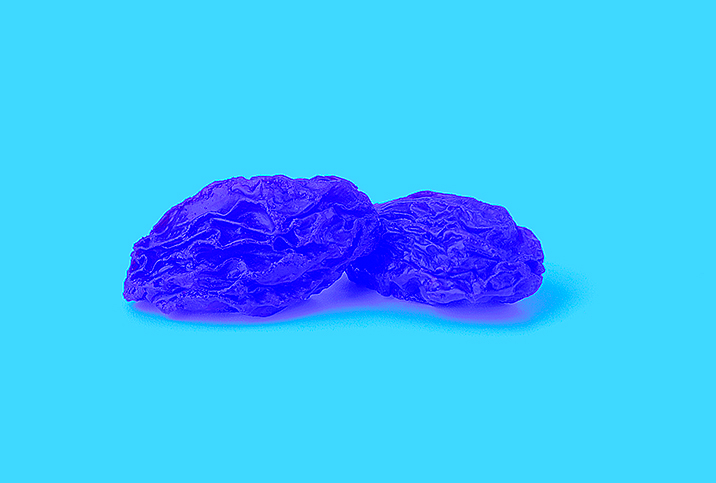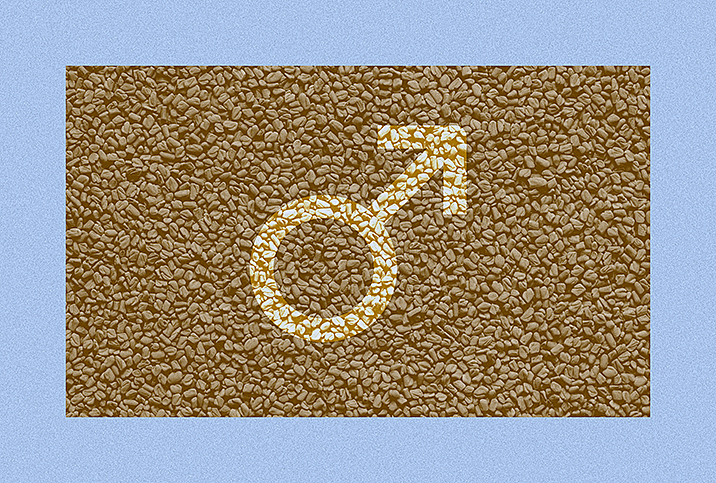Can I Have Kids After Chemotherapy?

Men facing chemotherapy for cancer treatment will experience varying effects, but one to expect for sure is an inevitable impact to their sperm.
The extent to which chemotherapy affects sperm quality and quantity differs among patients. While chemotherapy always damages sperm production, some patients experience a permanent alteration, while others may endure a temporary impact.
"Either way, any chemotherapy, whether you're getting it for colon cancer or whether you're getting it for testicular cancer, can affect other spermatogenesis," said Jennifer Linehan, M.D., a urologist and associate professor of urologic oncology at Saint John's Cancer Institute at Providence Saint John's Health Center in Santa Monica, California.
If chemotherapy is in your future—and you are keen to keep your reproductive options open—here's what you need to know.
Bank sperm early—even if you're not sure about kids
Chemotherapy damages sperm, both existing and future sperm, so doctors almost always recommend men begin banking their sperm as early as possible during cancer treatment—even if they aren't sure they want children, said Julie Lamb, M.D., a board-certified reproductive endocrinologist at Pacific Northwest Fertility in Seattle and Bellevue, Washington, and a clinical faculty member at the University of Washington.
Linehan said she recommends sperm banking for any patient younger than 45, because it only takes about one hour, costs about $50 and could be a game changer later in life.
"We always recommend fertility preservation to any male patient with a cancer diagnosis, regardless of treatment required," said Daniel Nassau, M.D., a urologist at Nicklaus Children's Hospital and a urology fellow at the University of Miami. "This usually involves a semen sample that is collected at home or in a sperm bank. Although it is usually a very challenging time to get diagnosed with cancer, we try to intervene quickly and recommend fertility preservation prior to initiating any treatment."
Sperm banking is a fairly simple process and is covered by some insurance carriers in the case of chemotherapy, so Lamb said most doctors recommend it even if the man isn't sure about having kids. That way, the patient has the option for a biological child or children should they change their mind later. Additionally, Nassau pointed out some cancer patients may be adolescents who simply haven't even considered having kids yet.
"[That's] why it is so important to discuss potential impacts of treatment on fertility and discuss the benefits of preservation," he said.
Sperm preservation is ultimately the patient's choice. If the patient is adamant they don't want to bank sperm or they already have children and don't want more, they can decline sperm banking.
"This is a difficult scenario, but ultimately, it is the patient's choice," Nassau explained. "We typically would recommend sperm banking, letting the patient know that they may change their mind in the future, but if they are not interested, that is their choice."
On the other hand, if the patient knows he's ready for children, it's possible to bank sperm before treatment begins so their partner can continue the process of conceiving through in vitro fertilization (IVF) while the patient undergoes treatment. (Of course, that's a choice that comes with its own set of challenges, but just know it is possible.)
Your sperm is safe
Understandably, men who bank sperm while they're active cancer patients may have some concerns about the safety of their deposits. But Lamb emphasized the sperm itself does not have any ability to pass cancer on to future offspring. Of course, there is a risk that any genetic predisposition to cancer is stored in DNA, but she noted you cannot give your baby cancer by using sperm collected just after diagnosis. In fact, she said the quality and quantity of sperm collected before chemotherapy is better than it would be after treatment.
"A relative with cancer is always a risk factor for cancer in the family due to genetics, but using banked sperm before treatment versus sperm after cure does not change this risk," Nassau added.
Depending on factors such as the man's age, health status, level of chemotherapy needed and any other cancer treatments, it is possible to conceive naturally after chemo has been completed. In fact, for some men, the impact of chemo on sperm quality and production can be temporary.
"It's different in every patient," Linehan said. "Some patients will regain fertility, and in a couple of years, their sperm counts are fine. But some patients do not."
For men who want to go the "old-fashioned" route, conceiving naturally may be an option on a case-by-case basis.
"Chemo usually can cause lower sperm counts, but babies conceived naturally after chemo are healthy," Lamb said.
However, both doctors recommended that men who have undergone chemotherapy follow two guidelines:
- Consult a doctor before trying to conceive naturally.
- Adhere to the typical recommendation of waiting 12 to 24 months post-treatment to allow normal spermatogenesis to return, depending on the chemotherapy regimen that was used.
Chemotherapy can cause mutations during sperm production, and Linehan said there may be a risk of transferring these mutations to an embryo. Thus, the two-year waiting period is to allow men's spermatogenesis to return to normal—or as normal as possible—before they try to conceive naturally.
Consider all the aspects
If you're thinking about having kids while facing a cancer diagnosis, it's important to understand that a lot of emotions are involved and they deserve to be explored, Nassau said.
"From a fertility perspective, having to undergo sperm banking and then in vitro fertilization or adoption is not what most people had envisioned when planning for a family, so it is important to try and understand how that affects them emotionally and [you] may need to counsel them from that perspective," he said.
Nassau explained that sperm banking doesn't operate in a use-it-or-lose-it manner. If you go through chemotherapy with minimal impact to your sperm, you don't have to use the sperm you banked—it's there if you need it.
In fact, if you don't want to pay storage costs—most sperm banks charge several hundred dollars per year—you can discard the sperm samples at any time.
Linehan also acknowledged that dealing with the emotional aspect of conceiving after cancer treatment requires a lot more work. For instance, a female partner has to take steps to prepare her uterus and endure other physical processes through IVF, so couples should communicate about these aspects.
But the price paid for extra steps to parenthood is definitely worth it for some people.
"Most of these patients would rather take that risk and not have cancer and have the chance to become a dad later down the road than not at all," Linehan said.




















